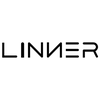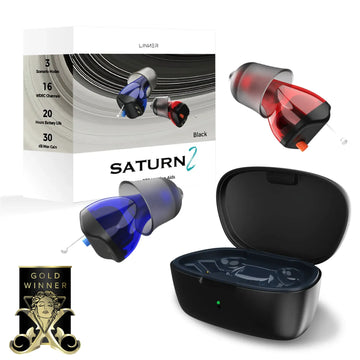Hearing loss reshapes the world one growing silence at a time. It it’s too easy to define it as a medical issue, but at its heart it’s a profoundly human one that silently separates sufferers form the people around them. Reconnecting people to the sounds and voices they love takes both innovation and empathy. That’s why today’s healthcare landscape needs nurses who understand the science of hearing and the emotions behind it. Through flexible online MSN-AGACNP programs, more nurses are learning how to guide older adults through the complex realities of age-related communication challenges, making sure that when hearing fades, understanding never has to.
Hearing loss doesn’t arrive all at once. It creeps in quietly: a missed word here, a mumbled laugh there, the growing habit of pretending you understood. For many people, that slow fade in connection is as painful as the silence itself.
When hearing starts to change, life does too. Everyday conversations become harder to follow, phone calls feel exhausting, and social events start to feel like work. But hearing loss isn’t just about sound; it’s about communication, confidence, and care. And as more people face this challenge, healthcare needs are shifting and calling for professionals who understand not only the science of hearing, but also the people behind it.
Building Skills for Complex Care
For nurses who want to do more than manage symptoms, advanced education can open the door to deeper impact. An online AGACNP program prepares registered nurses to work with adults and older adults who face complex, overlapping health challenges, with hearing loss among them.
The “AGACNP” stands for Adult-Gerontology Acute Care Nurse Practitioner. It’s a mouthful, but it translates to something simple: nurses who specialize in the kind of care that aging bodies and minds truly need. These professionals step in when conditions grow complicated: when hearing issues meet heart concerns, mobility changes, or medication side effects.
What makes programs like Rockhurst’s stand out is their accessibility. The coursework is online, flexible, and designed for working nurses who can’t put life on hold. Clinical hours and short immersions add real-world experience without losing balance. That preparation matters, because the need for this kind of care is only growing — more on that next.
The Rising Tide of Hearing Loss and Aging Care
Almost one in four people worldwide are expected to experience some form of hearing loss by 2050. That’s a staggering figure, and it’s reshaping how health systems think about aging.
Hearing loss isn’t just about volume. It’s linked to loneliness, anxiety, and faster cognitive decline. When people stop engaging because they can’t follow what’s being said, their overall health begins to suffer. Early detection, patient education, and supportive follow-through make a real difference, which is why well-trained nurses, audiologists, and caregivers are more important than ever.
Behind every hearing aid or assistive device is a story: a grandparent who wants to hear their grandkids, a teacher staying connected to a class, a retiree keeping conversations alive at the dinner table. Managing hearing health means managing human connection, and that calls for clinicians who bring skill and empathy in equal measure.
Nurses as Connectors in Hearing and Healing
When someone starts to lose their hearing, the first professional they turn to isn’t always an audiologist — it’s often a nurse. Nurses are the ones who notice when a patient keeps asking for something to be repeated, or when test results aren’t the issue but comprehension is. They’re trained to see beyond symptoms and into the lived experience of their patients.
Good nurses translate between technology and emotion. They help patients understand how to use hearing aids properly, what to expect during the adjustment period, and how to talk about the frustration that sometimes comes with it. They’re also the bridge between different specialists — audiologists, ENT doctors, therapists — making sure no one falls through the cracks.
In an age of telehealth, this human touch matters more than ever. A caring voice on a video call, a follow-up message after a tough appointment — those little moments keep patients grounded. They remind people that even when the world sounds distant, they’re not alone.
Making Healthcare More Accessible
Accessibility doesn’t end with devices; it extends to education, communication, and opportunity. Affordable hearing technology makes everyday life possible again, while online learning gives healthcare professionals the chance to advance without leaving their communities. Both break down barriers that used to make progress expensive or out of reach.
For patients, this means more qualified professionals who understand the realities of aging and hearing loss. For nurses, it means the freedom to grow their careers while staying close to home. And for families, it means better conversations, stronger care, and fewer moments lost to silence.
The world is getting older, but it’s also getting smarter about how to care for that age — and that’s good news for everyone.
Wrap-Up
Hearing loss can be isolating, but it doesn’t have to be permanent silence. With affordable hearing aids, compassionate nurses, and new ways to learn and deliver care, communication is becoming more accessible every day.
Behind every hearing device is a nurse who took the time to listen, a teacher who went back to school, a caregiver who learned something new. Together, they remind us that healthcare isn’t just about fixing what’s broken — it’s about helping people stay connected to what they love most.





![Linner Mercury Clarity OTC Hearing Aids [FSA & HSA Eligible] Linner](http://www.linnerlife.com/cdn/shop/files/Linner-Mercury-Clarity-OTC-Hearing-Aids-_FSA-_-HSA-Eligible_-Linner-110038953.webp?v=1725853434&width=360)

